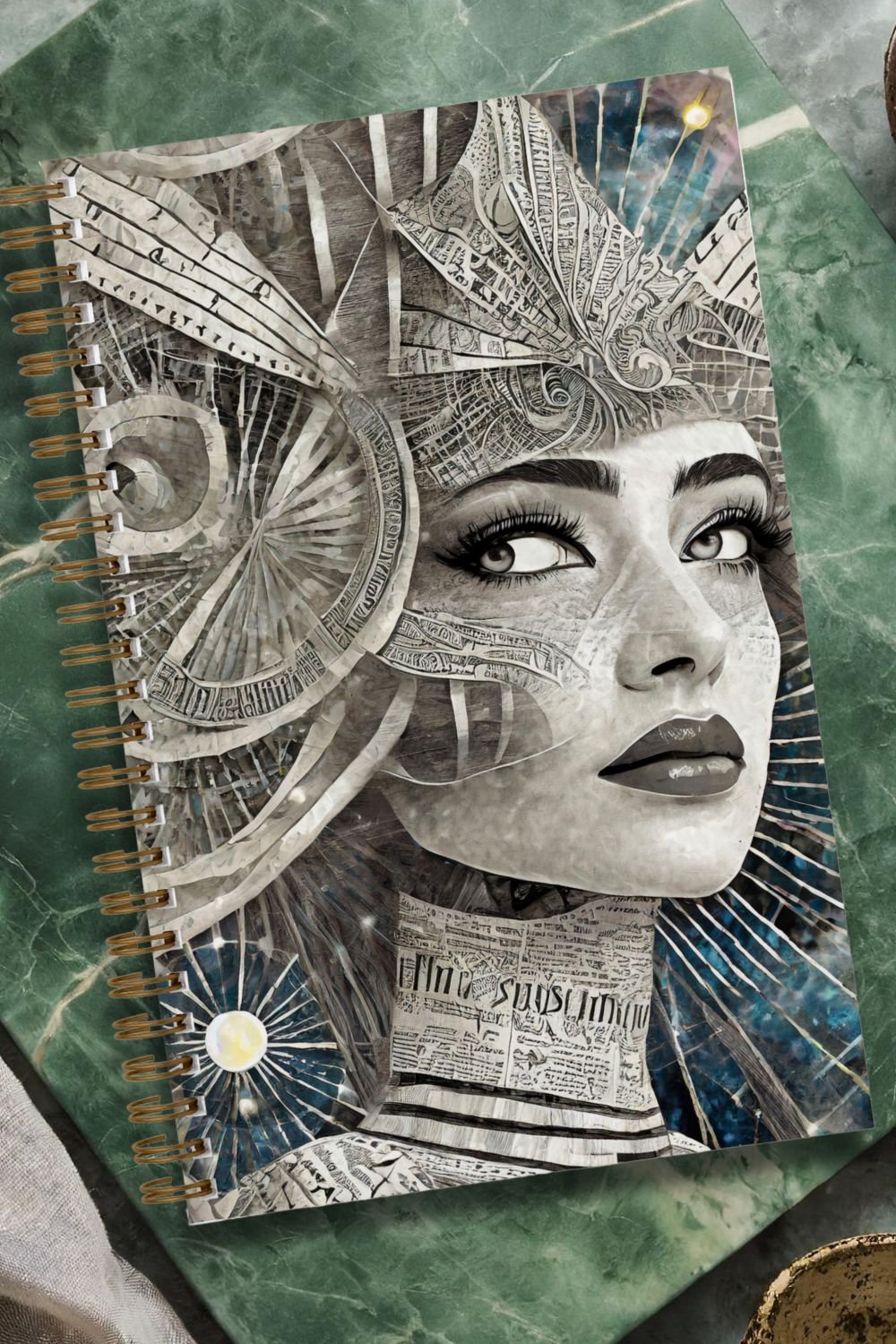Intuition Meaning: Psychologists, Scientists, and Artists On The Meaning Of Intuition
What is the meaning of intuition?
What does intuition mean?
Fittingly, intuition is one of those things that’s easier to sense than it is to define, but reflecting on what intuition means can be helpful to developing intuition and learning how to effectively use intuition in your daily life. To me, intuition means using the full knowledge of my body, not just what is consciously in my mind right now, or what I can consciously recall at this moment. Intuition is a “just knowing” feeling, but it also more than that. Intuition has its own language of sorts. It is the language of the subconscious and it speaks in images and symbols and is accessible to the conscious mind through symbol interpretation, snippets of words and phrases, and bits of music that may or may not immediately make sense to the conscious mind. The more I develop my intuition and understand what intuition means and feels like, the more I can act from my entire being, and the more content I feel with my actions and life choices.
The best way to understand the meaning of intuition is to develop your intuition and learn to consciously recognize and accept the feeling of intuition (check out the intuition development resources here), but thinking about the meaning of intuition is a perfect way to start that process. So, let’s explore what intuition means by taking a look at the intuition meaning found in dictionaries and thesauruses, quotes about intuition from writers, philosophers, and poets, and insights about intuition from science and psychology.
Intuition meaning from the dictionary
A dictionary is always a good place to start exploring the meaning of a word, so here’s what a few dictionaries say about the meaning of intuition:
Intuition meaning: “Direct apprehension or cognition; immediate knowledge, as in perception or consciousness; — distinguished from "mediate" knowledge, as in reasoning; as, the mind knows by intuition that black is not white, that a circle is not a square, that three are more than two, etc.; quick or ready insight or apprehension.”¹
Intuition meaning: “[T]he power of the mind by which it immediately perceives the truth of things without reasoning or analysis: a truth so perceived, immediate knowledge in contrast with mediate.”²
Intuition meaning: “Any quick insight, recognized immediately without a reasoning process; a belief arrived at unconsciously; -- often it is based on extensive experience of a subject.”³
Intuition meaning: “The ability to have insight into a matter without conscious thought[.]”⁴
Intuition meaning: “…[I]nstinctive knowing (without the use of rational processes).…”⁵
Intuition meaning: “[H]unch, suspicion (an impression that something might be the case) ‘he had an intuition that something had gone wrong’….”⁶
And here are a few words with similar meanings to intuition from the thesaurus to help further flesh out the meaning of intuition:
ESP, anschauung, clairsentience, clairvoyance, common sense, extrasensory perception, feeling, foreboding, forefeeling, foresight, funny feeling, hunch, impression, insight, instinct, intimation, intuitive impression, intuitiveness, lucidity, mother wit, perception, perceptiveness, percipience, perspicacity, preapprehension, premonition, presentiment, psychometry, second sight, sixth sense, suspicion, vague feeling, vague idea, basic cognitive process, belief, notion, opinion. See also: anticipation, apercu, belief, clairvoyance, depth, discernment, ESP, feeling, foreboding, foresight, hunch, impression, insight, inspiration, instinct, intellect, intimation, knack, lucidity, perception, precognition, premonition, presentiment, satori, sense, sensitivity, suspicion, understanding.⁷
These definitions and associated words certainly tell us something about the meaning of intuition, but perhaps because intuition is more of a felt sense, these definitions don’t seem to fully encompass what intuition means. When a straightforward definition fails, it’s time to turn to the arts!
Intuition meaning from quotes about intuition
What do writers, poets, and philosophers say about intuition that can help us understand the meaning of intuition? Here are a few quotes about intuition to help us better understand the meaning of intuition from the perspective of the arts.
“Trust yourself and your instincts; even if you go wrong in your judgement, the natural growth of your inner life will gradually, over time, lead you to other insights. Allow your verdicts their own quiet untroubled development which like all progress must come from deep within and cannot be forced or accelerated. Everything must be carried to term before it is born. To let every impression and the germ of every feeling come to completion inside, in the dark, in the unsayable, the unconscious, in what is unattainable to one’s own intellect, and to wait with deep humility and patience for the hour when a new clarity is delivered….” – Rainer Maria Rilke, Letters To A Young Poet
“We have all a better guide in ourselves, if we would attend to it, than any other person can be.” – Jane Austen, Mansfield Park
“…[W]isdom must be intuitive reason combined with scientific knowledge….” – Aristotle, Nicomachean Ethics
“Intuition is like reading a word without having to spell it out. A child can't do that because it has had so little experience. A grown-up person knows the word because they've seen it often before.” ― Agatha Christie, Murder at the Vicarage
“These two faculties or capacities cannot exchange their functions. The understanding cannot intuit anything, the senses cannot think anything. Only from their union can knowledge arise. But this is no reason for confounding their respective contributions; rather, it gives us a strong reason for carefully separating and distinguishing the one from the other. We therefore distinguish the science of the rules of sensibility in general, i.e., aesthetic, from the science of the rules of the understanding in general, i.e., logic." – Immanuel Kant, Critique of Pure Reason
“When you reach the end of what you should know, you will be at the beginning of what you should sense.” Khalil Gibran, Sand and Foam
A woman’s intuition is better than a man’s. Nobody knows anything, really, you know, and a woman can guess a good deal nearer than a man.” – Mark Twain, The Gilded Age: A Tale of Today
“Instinct rather than reason came to my help…” ― Virginia Woolf, A Room of One’s Own
“Is it a foolish dream, an idle and vague superstition? / Or has an angel passed, and revealed the truth to my spirit?" / Then, with a blush, she added, "Alas for my credulous fancy! / Unto ears like thine such words as these have no meaning." / But made answer the reverend man, and he smiled as he answered,-- / "Daughter, thy words are not idle; nor are they to me without meaning. / Feeling is deep and still; and the word that floats on the surface / Is as the tossing buoy, that betrays where the anchor is hidden. / Therefore trust to thy heart, and to what the world calls illusions.” ― Henry Wadsworth Longfellow, Evangeline
These quotes about intuition feel a little closer to the actual meaning of intuition than the dictionary definitions to me, perhaps because they are a bit closer to the more roundabout language intuition itself speaks. From these quotes about intuition, we can take a few truths about what intuition is: an inner guide that comes to us through our spirit and heart, an instinct, an accumulation of knowledge obtained through time and practice, a function that exists beyond logical reason, a companion to logical reasoning, and a concept traditionally associated with the feminine (though, feminine aspects of personality exist within all of us regardless of gender).
Intuition meaning from psychology & science
What can science and psychology tell us about the meaning of intuition? After all, Albert Einstein was a proponent of the role of intuition in our lives, famously stating, “I believe in intuitions and inspirations. I sometimes feel that I am right. I do not know that I am. […] I am enough of the artist to draw freely upon my imagination. Imagination is more important than knowledge. Knowledge is limited. Imagination encircles the world.”⁸ So with Einstein’s endorsement, on to the science and psychology of intuition.
I wrote about this in the post on 5 Types Of Journals To Keep To Get In Touch With Your Intuition, but Malcolm Gladwell’s book Blink: The Power of Thinking Without Thinking is an interesting read if you’re looking for accessible information about some of the science behind intuition. In Blink, Gladwell describes an experiment in which participants have two decks of blue cards and two decks of red cards. Each card gives the participant money or takes money away. Choosing a red card sometimes awards a high dollar amount, but usually results in a large loss. In contrast, the blue cards rarely lose money and usually award a small amount of money. Before the participants became consciously aware and able to describe this pattern, their bodies began to respond to the pattern by sweating when they reached for a red card. Participants also began to unconsciously choose more blue cards before they were able to describe the pattern. Researchers found that participant’s bodies responded after about 10 rounds of the game, and that participants were able to articulate a hunch about the pattern after about 50 cards, but it took around 70 cards before participants were able to describe the pattern!
If you’d like to read more about the meaning of intuition from the scientific perspective, here are a few resources:
The Powers and Perils of Intuition from Scientific American
The Science of Intuition: How to Measure 'Hunches' and 'Gut Feelings' from Live Science
Understanding Intuition: A Journey In and Out of Science by Lois Isenman
Gut Feelings: The Intelligence of the Unconscious by Gerd Gigerenzer
Thinking, Fast And Slow by Daniel Kahneman
Blink: The Power of Thinking Without Thinking by Malcolm Gladwell
In the realm of psychology, Carl Jung referred to intuition as a basic psychological function (along with thinking, feeling, and sensing). Jung also believed that intuition arises from the subconscious and exists outside the realm of reason. On the meaning of intuition, Jung wrote, “…I call intuition any kind of perception which takes place in a way that cannot be explained by the function of the senses.”⁹
If you want to read more about the meaning of intuition from the perspective of psychology, here are a few resources:
Jung and Intuition by Nathalie Pilard
Intuition – It’s More Than a Feeling from Association for Psychological Science
Intuition from Psychology Today
Clinical Intuition in Psychotherapy: The Neurobiology of Embodied Response by Terry Marks-Tarlow
Predictably Irrational, Revised and Expanded Edition: The Hidden Forces That Shape Our Decisions by Dr. Dan Ariely
Here are a few key ideas about intuition from science and psychology: intuition is derived from our prior experiences and understandings, we all use intuitive reasoning, conscious logical reasoning and intuition work best together, and just like you can improve your logical reasoning with practice, you can also learn to better use your intuition!
Intuition meaning
From looking at what dictionaries, writers, poets, philosophers, scientists, and psychologists say about the meaning of intuition, we can see that intuition means a quick way of knowing that doesn’t come from logical reasoning or the conscious mind and that this knowing comes from an accumulation of all the knowledge that we hold. Intuition is an important way that we arrive at conclusions and make decisions, and we often think of intuition as being an animal-like instinct coming from our spirit. We’re using our intuition already, and we can learn to use our intuition even better by practicing and allowing our conscious mind to acknowledge this way of knowing. Understanding the meaning of intuition is a great first step in acknowledging that we use this way of knowing constantly in our daily lives. When we acknowledge the existence of intuition and its role in our lives, we can then learn to develop our conscious mind’s ability to hear our intuition so that they can work together to optimize our decision-making processes and the way we interact with ourselves and the world around us.
If you’re interested in developing your intuition, you can find intuition development exercises here.
Photos for this article were created with Adobe Firefly.




Citations for Intuition Meaning
Princeton University "About WordNet." WordNet. Princeton University. 2010.
Princeton University "About WordNet." WordNet. Princeton University. 2010.
Quote Investigator: Imagination Is More Important Than Knowledge.
Carl Jung, Letters, Volume I.







